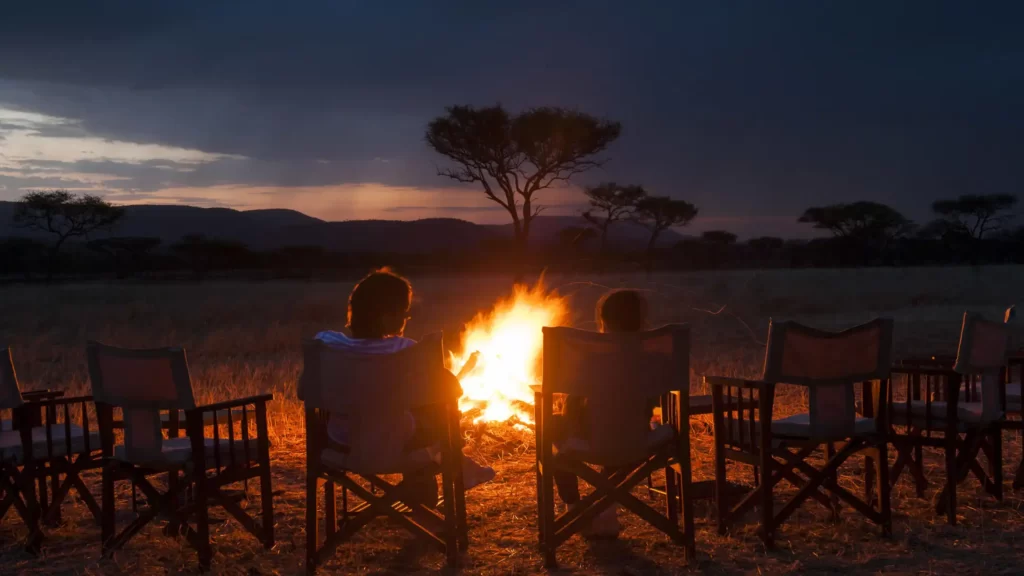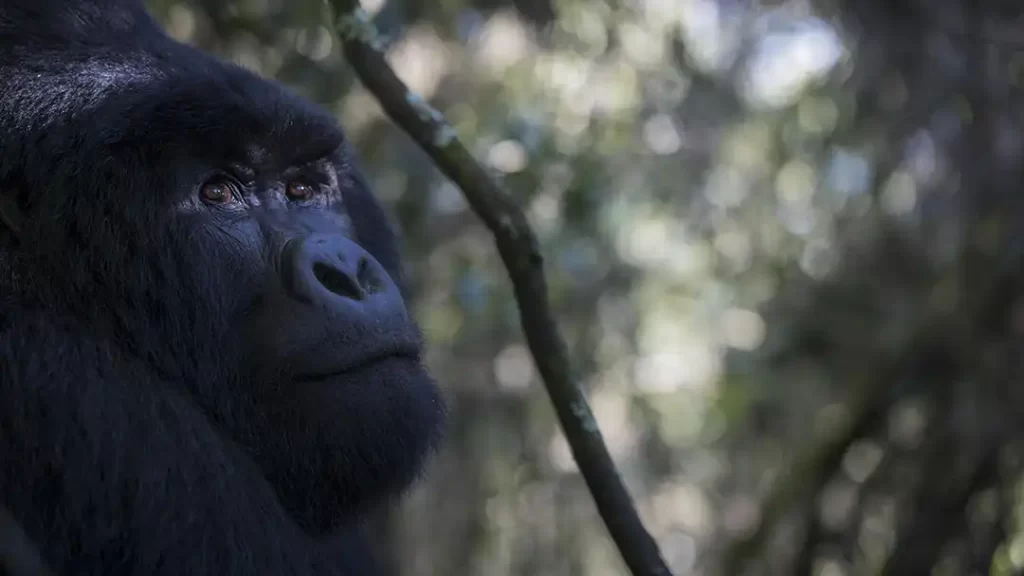FAQs
General FAQs
When is the best time to embark on a safari or visit the region?
Ideal visiting periods are during the dry seasons: June to October and December to March, offering superb wildlife viewing opportunities and enjoyable weather conditions.
What unique cultural experiences can visitors look forward to?
From Maasai village tours and Swahili language immersion to participating in gorilla trekking ceremonies and enjoying traditional dance performances, the region offers a rich tapestry of cultural experiences.
Do travelers need a visa for visiting countries such as Kenya, Tanzania, Uganda, and Rwanda?
Yes, most international visitors are required to obtain a visa, which can be conveniently acquired online or upon arrival in these countries, depending on the nationality of the traveler.
Which languages will travelers encounter, and how prevalent is English?
English and Swahili are widely spoken, serving as lingua francas that facilitate communication with locals and in business contexts, alongside numerous indigenous languages.
Are direct flights available from international cities to destinations like Nairobi, Dar es Salaam, Kigali, and Entebbe?
Yes, several international airlines provide direct connectivity from major global cities to these key urban centers, facilitating easy access for tourists and business travelers alike.
Is it convenient for travelers to use credit cards, or should they rely on cash?
While credit cards are accepted in major urban centers and tourist establishments, carrying cash is advisable for transactions in remote areas or with small-scale vendors.
What currencies should visitors expect to use in these countries?
The Kenyan Shilling, Tanzanian Shilling, Ugandan Shilling, and Rwandan Franc are the respective currencies, with exchange services readily available at airports and major urban areas.
Beyond national parks, what other wildlife viewing opportunities are available?
Numerous wildlife conservancies and sanctuaries offer more intimate and unique wildlife viewing experiences, often with a focus on conservation and community involvement.
How safe is it for tourists traveling to these destinations?
Generally, these countries are safe for tourists. However, it's advisable to exercise standard precautions, especially in urban and crowded areas, and stay updated with travel advisories.
Considering the regional climate and activities, what should travelers pack?
Essential items include lightweight and breathable clothing, sturdy footwear for walking or hiking, sun protection gear, insect repellent, and a good pair of binoculars for wildlife spotting.
What vaccinations are recommended or required for travelers?
A yellow fever vaccination is mandatory for entry into these countries. Vaccinations against hepatitis A, typhoid, and rabies are also highly recommended for added health protection.
Is obtaining travel insurance recommended for visitors to the region?
Absolutely, securing comprehensive travel insurance is crucial for covering potential health emergencies, travel disruptions, and engaging in various adventure activities with peace of mind.
What health risks should travelers be aware of?
Malaria poses a significant risk in many areas, so taking prophylactic medications and using mosquito repellent are essential precautions.
For those interested in self-driven explorations, is renting a car advisable?
Renting a car is an option for visitors wanting the flexibility of self-drive adventures. However, it's important to be prepared for varying road conditions and to ensure possession of an international driving permit.
What is the general climate, and how might it affect travel plans?
The climate is predominantly tropical, characterized by warm days and cooler nights, with variations in temperature and precipitation depending on the region and elevation.
What are the customary tipping practices for services received during the visit?
Tipping for good service is customary and appreciated, with suggested amounts being around 10-15% in restaurants and for personal services like guided tours and taxi rides.
Kenya
What is the best time to visit Kenya for wildlife safaris?
The best time to visit Kenya for wildlife safaris is during the dry seasons (June to October and December to March), when animals are easier to spot due to sparse vegetation and concentrated water sources.
Are there any cultural experiences available in Kenya?
Yes, Kenya is rich in cultural diversity, with opportunities to engage in cultural visits, interact with local communities, and learn about traditional customs, music, dance, and cuisine.
Do I need a visa to travel to Kenya?
Most visitors to Tanzania require a visa, which can often be obtained upon arrival or online prior to travel. It's advisable to check the specific requirements based on your nationality before departure.
What languages are spoken in Kenya?
Swahili and English are widely spoken languages in Kenya, although numerous ethnic languages are also spoken by local communities.
Are there direct flights to Kenya from major international cities?
Yes, major international airports in Kenya, such as Jomo Kenyatta International Airport in Nairobi and Moi International Airport in Mombasa, offer direct flights from various cities around the world.
Can I use credit cards in Kenya?
Credit cards are accepted in major cities and tourist areas, but it's advisable to carry cash, especially in rural areas where card acceptance may be limited.
What is the currency used in Kenya?
The currency used in Kenya is the Kenyan Shilling (KES).
Are there any wildlife viewing opportunities outside of national parks?
Yes, wildlife can often be seen in conservation areas, private reserves, and community-owned conservancies, offering alternative options for wildlife viewing away from crowded national parks.
Is it safe to travel to Kenya?
While Kenya is generally safe for tourists, travelers should exercise caution, especially in urban areas and tourist hotspots. It's advisable to stay informed about local conditions and follow any travel advisories issued by your government.
What should I pack for a trip to Kenya?
Essential items to pack include lightweight clothing, sturdy walking shoes, a hat, sunscreen, insect repellent, binoculars, a camera, and any necessary medications or personal hygiene products.
What vaccinations do I need before traveling to Kenya?
Common vaccinations recommended for travel to Kenya include yellow fever, typhoid, hepatitis A, and malaria prophylaxis.
Is travel insurance recommended for visiting Kenya?
Yes, travel insurance is highly recommended to cover unexpected emergencies, medical expenses, trip cancellations, and other unforeseen circumstances during your trip.
Are there any health risks associated with visiting Kenya?
Health risks in Kenya include malaria, dengue fever, and other mosquito-borne diseases, as well as food and waterborne illnesses. Travelers should take necessary precautions and consult a healthcare provider before departure.
Can I rent a car and drive myself in Kenya?
Yes, car rental services are available in major cities, but driving conditions can be challenging, and navigation may be difficult in rural areas. It's advisable to hire a local driver or guide for a safer and more convenient experience.
What is the climate like in Kenya?
Kenya's climate varies by region, ranging from tropical along the coast to temperate in the highlands. The dry seasons generally coincide with the best times for wildlife viewing, while the rainy seasons can vary in intensity and duration.
What is the tipping etiquette in Kenya?
Tipping practices vary by service provided, but it's customary to tip safari guides, hotel staff, and restaurant servers for excellent service.
Tanzania
What is the best time to visit Tanzania for wildlife safaris?
The best time to visit Tanzania for wildlife safaris is during the dry seasons (June to October and December to March), when animals are easier to spot due to sparse vegetation and concentrated water sources.
Are there any cultural experiences available in Tanzania?
Yes, Tanzania is rich in cultural diversity, with opportunities to engage in cultural visits, interact with local communities, and learn about traditional customs, music, dance, and cuisine.
Do I need a visa to travel to Tanzania?
Most visitors to Tanzania require a visa, which can often be obtained upon arrival or online prior to travel. It's advisable to check the specific requirements based on your nationality before departure.
What languages are spoken in Tanzania?
Swahili and English are widely spoken languages in Tanzania, although numerous ethnic languages are also spoken by local communities.
Are there direct flights to Tanzania from major international cities?
Yes, major international airports in Tanzania, such as Julius Nyerere International Airport in Dar es Salaam and Kilimanjaro International Airport, offer direct flights from various cities around the world.
Can I use credit cards in Tanzania?
Credit cards are accepted in major cities and tourist areas, but it's advisable to carry cash, especially in rural areas where card acceptance may be limited.
What is the currency used in Tanzania?
The currency used in Tanzania is the Tanzanian Shilling (TZS).
Are there any wildlife viewing opportunities outside of national parks?
Yes, wildlife can often be seen in conservation areas, private reserves, and community-owned conservancies, offering alternative options for wildlife viewing away from crowded national parks.
Is it safe to travel to Tanzania?
While Tanzania is generally safe for tourists, travelers should exercise caution, especially in urban areas and tourist hotspots. It's advisable to stay informed about local conditions and follow any travel advisories issued by your government.
What should I pack for a trip to Tanzania?
Essential items to pack include lightweight clothing, sturdy walking shoes, a hat, sunscreen, insect repellent, binoculars, a camera, and any necessary medications or personal hygiene products.
What vaccinations do I need before traveling to Tanzania?
Common vaccinations recommended for travel to Tanzania include yellow fever, typhoid, hepatitis A, and malaria prophylaxis.
Is travel insurance recommended for visiting Tanzania?
Yes, travel insurance is highly recommended to cover unexpected emergencies, medical expenses, trip cancellations, and other unforeseen circumstances during your trip.
Are there any health risks associated with visiting Tanzania?
Health risks in Tanzania include malaria, dengue fever, and other mosquito-borne diseases, as well as food and waterborne illnesses. Travelers should take necessary precautions and consult a healthcare provider before departure.
Can I rent a car and drive myself in Tanzania?
Yes, car rental services are available in major cities, but driving conditions can be challenging, and navigation may be difficult in rural areas. It's advisable to hire a local driver or guide for a safer and more convenient experience.
What is the climate like in Tanzania?
Tanzania's climate varies by region, ranging from tropical along the coast to temperate in the highlands. The dry seasons generally coincide with the best times for wildlife viewing, while the rainy seasons can vary in intensity and duration.
What is the tipping etiquette in Tanzania?
Tipping practices vary by service provided, but it's customary to tip safari guides, hotel staff, and restaurant servers for excellent service.
Uganda
What is the best time to visit Uganda for wildlife safaris?
The best time to visit Uganda for wildlife safaris is during the dry seasons (June to August and December to February), when animals are easier to spot due to sparse vegetation and concentrated water sources.
Are there any cultural experiences available in Uganda?
Yes, Uganda is rich in cultural diversity, with opportunities to engage in cultural visits, interact with local communities, and learn about traditional customs, music, dance, and cuisine.
Do I need a visa to travel to Uganda?
Most visitors to Uganda require a visa, which can often be obtained upon arrival or online prior to travel. It's advisable to check the specific requirements based on your nationality before departure.
What languages are spoken in Uganda?
English is the official language of Uganda, but Swahili and numerous ethnic languages are also spoken by local communities.
Are there direct flights to Uganda from major international cities?
Yes, major international airports in Uganda, such as Entebbe International Airport, offer direct flights from various cities around the world.
Can I use credit cards in Uganda?
Credit cards are accepted in major cities and tourist areas, but it's advisable to carry cash, especially in rural areas where card acceptance may be limited.
What is the currency used in Uganda?
The currency used in Uganda is the Ugandan Shilling (UGX).
Are there any wildlife viewing opportunities outside of national parks?
Yes, wildlife can often be seen in conservation areas, private reserves, and community-owned conservancies, offering alternative options for wildlife viewing away from crowded national parks.
Is it safe to travel to Uganda?
While Uganda is generally safe for tourists, travelers should exercise caution, especially in urban areas and tourist hotspots. It's advisable to stay informed about local conditions and follow any travel advisories issued by your government.
What should I pack for a trip to Uganda?
Essential items to pack include lightweight clothing, sturdy walking shoes, a hat, sunscreen, insect repellent, binoculars, a camera, and any necessary medications or personal hygiene products.
What vaccinations do I need before traveling to Uganda?
Common vaccinations recommended for travel to Uganda include yellow fever, typhoid, hepatitis A, and malaria prophylaxis.
Is travel insurance recommended for visiting Uganda?
Yes, travel insurance is highly recommended to cover unexpected emergencies, medical expenses, trip cancellations, and other unforeseen circumstances during your trip.
Are there any health risks associated with visiting Uganda?
Health risks in Uganda include malaria, dengue fever, and other mosquito-borne diseases, as well as food and waterborne illnesses. Travelers should take necessary precautions and consult a healthcare provider before departure.
Can I rent a car and drive myself in Uganda?
Yes, car rental services are available in major cities, but driving conditions can be challenging, and navigation may be difficult in rural areas. It's advisable to hire a local driver or guide for a safer and more convenient experience.
What is the climate like in Uganda?
Uganda's climate varies by region, ranging from tropical along the equator to cooler temperatures in the highlands. The dry seasons generally coincide with the best times for wildlife viewing, while the rainy seasons can vary in intensity and duration.
What is the tipping etiquette in Uganda?
Tipping practices vary by service provided, but it's customary to tip safari guides, hotel staff, and restaurant servers for excellent service.
Rwanda
What is the best time to visit Rwanda for wildlife experiences?
The best time to visit Rwanda for wildlife experiences, particularly gorilla trekking, is during the dry seasons (June to September and December to February), when trails are more accessible and gorillas are easier to track.
Are there any cultural experiences available in Rwanda?
Yes, Rwanda offers cultural experiences such as visits to local villages, traditional dance performances, and opportunities to learn about Rwandan history and culture, including the genocide memorial sites.
Do I need a visa to travel to Rwanda?
Most visitors to Rwanda require a visa, which can often be obtained upon arrival or online prior to travel. It's advisable to check the specific requirements based on your nationality before departure.
What languages are spoken in Rwanda?
Kinyarwanda is the official language of Rwanda, but English and French are also widely spoken, especially in urban areas and tourist destinations.
Are there direct flights to Rwanda from major international cities?
Yes, Kigali International Airport offers direct flights from various cities around the world.
Can I use credit cards in Rwanda?
Credit cards are accepted in major cities and tourist areas, but it's advisable to carry cash, especially in rural areas where card acceptance may be limited.
What is the currency used in Rwanda?
The currency used in Rwanda is the Rwandan Franc (RWF).
Are there any wildlife viewing opportunities outside of national parks?
Yes, Rwanda offers wildlife viewing opportunities in conservation areas and community-managed reserves, including birdwatching, forest walks, and encounters with primates other than gorillas.
Is it safe to travel to Rwanda?
Rwanda is generally considered safe for tourists, with low crime rates and a stable political environment. However, travelers should exercise caution, especially in urban areas, and follow any travel advisories issued by their government.
What should I pack for a trip to Rwanda?
Essential items to pack include lightweight clothing, sturdy walking shoes, a hat, sunscreen, insect repellent, binoculars, a camera, and any necessary medications or personal hygiene products.
What vaccinations do I need before traveling to Rwanda?
Common vaccinations recommended for travel to Rwanda include yellow fever, typhoid, hepatitis A, and malaria prophylaxis.
Is travel insurance recommended for visiting Rwanda?
Yes, travel insurance is highly recommended to cover unexpected emergencies, medical expenses, trip cancellations, and other unforeseen circumstances during your trip.
Are there any health risks associated with visiting Rwanda?
Health risks in Rwanda include malaria, dengue fever, and other mosquito-borne diseases, as well as food and waterborne illnesses. Travelers should take necessary precautions and consult a healthcare provider before departure.
Can I rent a car and drive myself in Rwanda?
Yes, car rental services are available in major cities, but driving conditions can be challenging, and navigation may be difficult in rural areas. It's advisable to hire a local driver or guide for a safer and more convenient experience.
What is the climate like in Rwanda?
Rwanda has a temperate climate with relatively stable temperatures throughout the year. The dry seasons (June to September and December to February) are ideal for wildlife viewing, while the rainy seasons can vary in intensity and duration.
What is the tipping etiquette in Rwanda?
Tipping practices vary by service provided, but it's customary to tip safari guides, hotel staff, and restaurant servers for excellent service.











